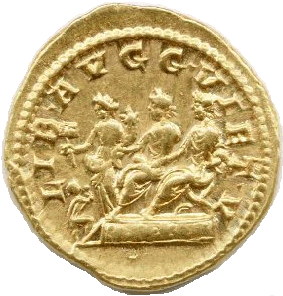Russ’ Quick Latin Grammar Reference
Welcome to Russ’ quick little Latin grammar reference pages. After so many years out of school, it’s time to make a quick reference I can use even when far away from my den. This will serve as a comprehensive review to help reacquire any morphology or grammar I have dropped since I left school.
I began studying Latin and Greek first at the Université de Paris X in Nanterre, France not far from my home then in the northwest suburbs of Paris back in the 70s. Among my professors was Jean-Marie Vermander who wrote an excellent beginniners’ text that I used over and over again never finding its equal in English. I confess that a lot of format decisions I made as I built this site owe much to that text (in particular, the arrangement of the verb-conjugation tables). At university in France, linguistics was heavily emphasized and so I have included additional notes on stuff like obscure phonetic transformations when I remembered them. I sometimes point out what’s happened to Latin after it became French or other Romance languages.
At Brigham Young University, I finished my Latin studies with a Bachelor’s of Arts in French and an Option II minor in Latin, Greek and General Studies (Philosophy, Literature, Anthropology, etc.). I think an Option II minor was a program at this school for professional students who didn’t want to graduate because they were having too much fun. It allowed a counselor to sit down, count up all the cool classes I had taken, declare me finished, and boot me out the door. By the time I got around to accepting my diploma, I had worked as a software engineer for over a decade: there was just no impetus to quit school!
Among other authors, I studied Cæsar and Homer under Douglas Phillips, Virgil and Homer under Norbert Duckwitz, and Catholic Epistles and Mythology under Thomas McKay. There was some Xenophon under David Seely and something I don’t remember under Daniel Blickmann. Those were delightful years of study under professors who loved to read and loved to teach.
While these pages are written in English, I learned my early Latin in French and I order the cases nom., acc., gen., dat., then abl. I know this annoyed American students all those years ago when I did it this way at BYU and it might annoy anyone else that looks here now, but my tears over this are only those of a crocodile. Get over it: it’s a superior order.
There is much content to add and polishing left to do on this site. I putter at it every couple of years.
Thanks for stopping in!



